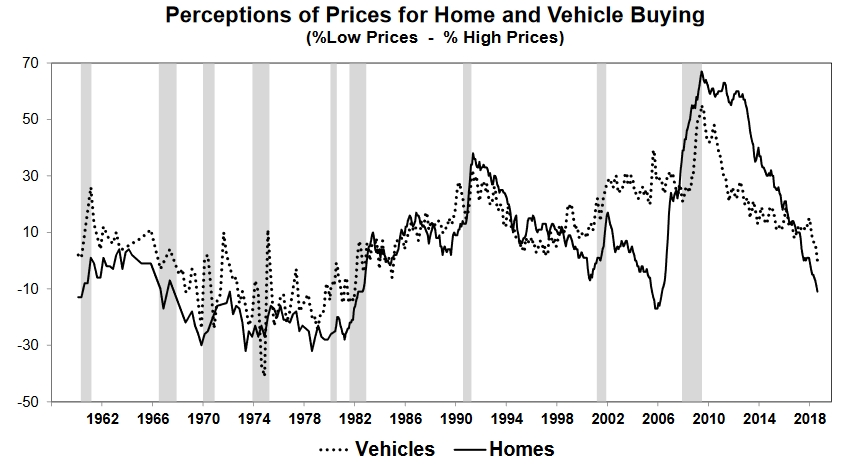University of Michigan consumer sentiment
Lowest since last September
Prior was 97.9
Current conditions 107.8 vs 114.4 prior
Expectations 87.3 vs 87.3 prior
1-year inflation expectations 2.9% vs 2.9% prior
5-10 year inflation expectations 2.5% vs 2.4% prior
Current conditions at the lowest since late 2016. Here's the sub-index:

That's an odds drop given the strength in the stock market but it shows that perhaps the trade battle has consumers worried. The worries about durables are probably due to higher prices of
Comments from chief economists Richard Curtin:
"Consumer sentiment slipped to its lowest level since last September, with the decline concentrated among households in the bottom third of the income distribution. The dominating weakness reflected much less favorable assessments of buying conditions, mainly due to less favorable perceptions of market prices. Buying conditions for large household durables sank to the lowest level in nearly four years. When asked to explain their views, consumers voiced the least favorable views on pricing for household durables in nearly ten years, since October 2008. Vehicle buying conditions were viewed less favorably in August than anytime in the last four years, with vehicle prices being judged less favorably than anytime since the close of 1984. Home buying conditions were viewed less favorably in early August than anytime in the past ten years, with home prices judged less favorably than anytime since 2006. These are extraordinary shifts in price perceptions given that consumers anticipate an inflation rate in the year ahead of 2.9% in early August, unchanged from last month. The data suggest that consumers have become much more sensitive to even relatively low inflation rates than in past decades. As is usual at this stage in the business cycle, some price resistance has been neutralized by rising wages, although the falloff in favorable price perceptions has been much larger than ever before recorded. Overall, the data indicate that consumers have little tolerance for overshooting inflation targets, and to the benefit of the Fed, interest rates now play a more decisive role in purchase decisions." .




